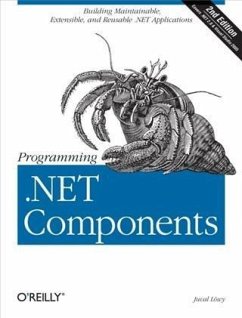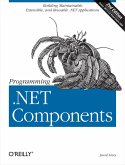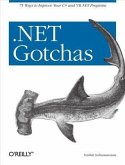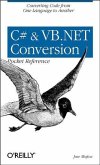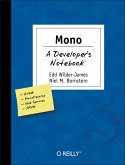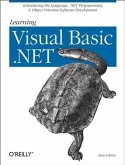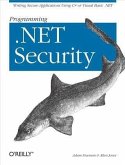Brilliantly compiled by author Juval Lowy, Programming .NET Components, Second Edition is the consummate introduction to the Microsoft .NET Framework--the technology of choice for building components on Windows platforms. From its many lessons, tips, and guidelines, readers will learn how to use the .NET Framework to program reusable, maintainable, and robust components.Following in the footsteps of its best-selling predecessor, Programming .NET Components, Second Edition has been updated to cover .NET 2.0. It remains one of the few practical books available on this topic. This invaluable resource is targeted at anyone who develops complex or enterprise-level applications with the .NET platform--an ever-widening market. In fact, nearly two million Microsoft developers worldwide now work on such systems.Programming .NET Components, Second Edition begins with a look at the fundamentals of component-oriented programming and then progresses from there. It takes the time to carefully examine how components can simplify and add flexibility to complex applications by allowing users to extend their capabilities. Next, the book introduces a variety of .NET essentials, as well as .NET development techniques. Within this discussion on component development, a separate chapter is devoted to each critical development feature, including asynchronous calls, serialization, remoting, security, and more. All the while, hazardous programming pitfalls are pointed out, saving the reader from experiencing them the hard way.A .NET expert and noted authority on component-oriented programming, Lowy uses his unique access to Microsoft technical teams to the best possible advantage, conveying detailed, insider information in easy-to-grasp, activity-filled language. This hands-on approach is designed to allow individuals to learn by doing rather than just reading. Indeed, after digesting Programming .NET Components, Second Edition, readers should be able to start developing .NET components immediately.Programming .NET Components, Second Edition is the consummate introduction to the Microsoft .NET Framework--the technology of choice for building components on Windows platforms. From its many lessons, tips, and guidelines, readers will learn how to use the .NET Framework to program reusable, maintainable, and robust components.Following in the footsteps of its best-selling predecessor, Programming .NET Components, Second Edition has been updated to cover .NET 2.0. This invaluable resource is targeted at anyone who develops complex or enterprise-level applications with the .NET platform--an ever-widening market.
Dieser Download kann aus rechtlichen Gründen nur mit Rechnungsadresse in A, B, BG, CY, CZ, D, DK, EW, E, FIN, F, GR, HR, H, IRL, I, LT, L, LR, M, NL, PL, P, R, S, SLO, SK ausgeliefert werden.
Hinweis: Dieser Artikel kann nur an eine deutsche Lieferadresse ausgeliefert werden.

